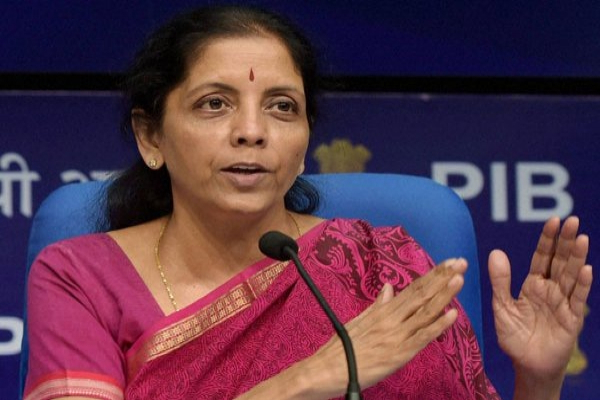Finance Minister Nirmala Sitharaman is set to present the full budget for the current financial year on July 23

Finance Minister Nirmala Sitharaman is set to present the full budget for the current financial year on July 23. Indian Pharma Post presents here the industry’s expectations from Budget:
Nandini Piramal, Chairperson, Piramal Pharma
“As we approach the upcoming budget, we’d like to underscore how strengthening regulatory frameworks and fostering strategic public-private partnerships can go a long way in enhancing India’s competitiveness on the global pharmaceutical landscape. Recognising the pharmaceutical industry’s substantial contribution to India’s exports, we eagerly anticipate schemes that provide fiscal incentives to encourage such exports. These measures will empower pharmaceutical companies to further invest in creating/maintaining world class facilities, thereby significantly contributing to the nation’s economic growth. By streamlining regulatory processes and encouraging collaborative initiatives, we can accelerate the delivery of high-quality, affordable healthcare solutions worldwide.
As we look forward, Pharma companies need to remain committed to advancing healthcare innovation on a global scale. The upcoming budget presents an opportunity to bolster our nation’s capabilities in driving transformative healthcare solutions, reinforcing our position as a preferred partner for global pharma collaborations.”
Dr Sangita Reddy, Joint Managing Director, Apollo Hospitals Group
“We are hopeful that the government will continue to prioritize the healthcare sector. The interim budget 2024-25 in February rightly emphasized preventive care, women's health, infrastructure expansion, and child development, marking significant strides towards a healthier future. We anticipate that the upcoming budget will maintain and strengthen this approach. The promotion of cervical cancer prevention by vaccination for girls aged 9-14 was one of the major announcements, and it represents a significant step toward improving women's health. We hope the government will keep on supporting these programs. Furthermore, Initiatives under programs like U-Win and Mission Indradhanush should be encouraged. Strengthening infrastructure is crucial to effectively enhance health services in rural and remote regions, ensuring equitable access to health care. Increased support is expected from the government to achieve this goal.”
Krishna Prasad Chigurupati, CMD, Granules India Ltd.
“India’s pharmaceutical industry, recognized as the ‘pharmacy of the world,’ is on the verge of a major transformation. Indigenous manufacturers are evolving with superior, cost-effective products. As a fast-growing sector, it is poised to become a global leader.
To achieve this goal, the Indian government must take bold strides, including creating innovation zones with benefits and infrastructural support and encouraging collaboration between public and private entities. The pharmaceutical industry needs more investment, and the government must incentivize and fund cutting-edge drug research and development. Streamlining regulations to speed up approvals for new treatments and investing in educating a workforce skilled in pharmaceutical innovation are crucial. Simultaneously, authorities need to weed out players that don’t conform to high-quality drug standards accepted globally, to become more credible and contribute to export earnings. These efforts will usher in a new era of Indian pharmaceutical leadership, characterized by path-breaking outcomes. The industry can then be part of India’s ambitious Viksit Bharat journey.
The Indian manufacturing sector is projected to contribute USD 800-900 billion to the GDP in the next 4 to 5 years. India has the potential to become a hub for sustainable manufacturing, contributing to the fight against climate change. We are at a tipping point of transformation that integrates sustainability with advanced technologies. This approach is essential to address the global climate crisis. As an industry leader, Granules India exhorts the Union Government to aggressively pursue its ambitious renewable energy and green hydrogen projects. This will demonstrate the country’s commitment to sustainable development, economic growth, energy independence, and global leadership in reducing carbon emissions.”
P N Arora, Chairman, Yashoda Super Speciality Hospitals, Kaushambi
“A critical aspect of healthcare demands revolves around accessibility and affordability. The sector advocates for subsidies or free health check-ups, especially for women and children, aiming to improve preventive care and early detection of diseases. In addition, there is a push for incentives and support for domestic manufacturing of medical devices to reduce reliance on imports and align with the ‘Make in India’ campaign. Non-communicable diseases (NCDs) like diabetes, cardiovascular diseases, and cancer are a major health concern in India. There is a need for increased budget allocation to prevent, treat, and manage NCDs, including supporting research, public awareness campaigns, and making treatment options more accessible. The sector also emphasises the importance of training and re-skilling healthcare workers to meet evolving healthcare demands with new technologies. Regarding health insurance, stakeholders are seeking fiscal reforms to create a more inclusive and sustainable health coverage model. It involves revisiting GST tariffs on healthcare services and products to ensure affordability and accessibility across all socioeconomic segments. Additionally, there is a call for insurance coverage for preventive healthcare measures, not just reactive medical treatments.”
Thomas Gebauer, Associate Director, Marketing, Progenesis
"In the forthcoming fiscal period, our budgetary priorities are geared towards democratizing access to pre-implantation genetic testing (PGT) in India, while simultaneously spearheading global expansion initiatives. A substantial portion of our budget should be allocated to advancing technology and incorporating artificial intelligence (AI) into the genetic testing processes. Furthermore, our budget outlines strategic collaborations with international healthcare organizations and research institutions to facilitate seamless global expansion. These alliances are crucial in ensuring the dissemination of advanced genetic testing methodologies to diverse populations. The increased budget allocation also extends to comprehensive training programs for healthcare professionals, ensuring that they are proficient in utilizing the latest technologies for optimal patient care. Simultaneously, proactive outreach campaigns will be executed to raise awareness about the importance of PGT and its accessibility across different economic strata. Leveraging telemedicine solutions will bridge geographical gaps, enabling individuals from remote areas to access state-of-the-art genetic testing services."

Subscribe To Our Newsletter & Stay Updated